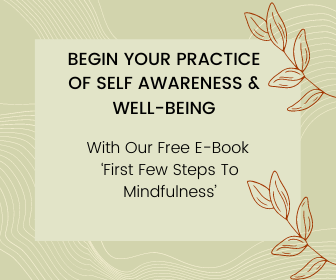
“We give him everything but he does not listen to us.”
“She makes so much noise, that I have to give her whatever she wants.”
“He doesn’t eat and my whole day is spent making sure that my child eats all his meals.”
“I know my child is making a mistake but I don’t know how to say no.”
“I am afraid that if I correct him, he will get angry and that will spoil our relationship.”
Does this sound familiar? A lot of parents today feel like this. You feel that you are giving your child whatever he wants, trying to fulfill his every need but there still seem to be behavioural difficulties- stubbornness, tantrums, etc- cropping up.
So, what’s going on here? As psychologists, we come across many parents (whether in therapy or in our environment) who seem to be going through the same thing. Like any other parent, you want to provide the best for your child. Even though your intentions are good, in doing so, you end up “over-indulging” or “mollycoddling” your child.
There are various styles of parenting, such as authoritative, nurturing, neglectful, overcritical, and supportive. In today’s generation, with increasing social pressure, a busy lifestyle and a higher standard of living, the “Over-Indulgent” style of parenting has come into focus. Overindulgent parenting also known as “over-permissive” or “over-nurturing” parenting, is when you tend to provide your child with whatever she wants or wishes and guidelines for discipline are lenient, or at times, absent. This intention does come out of love for your child but it is coupled with a belief that “My child should not lack or fall short of anything he or she wants.”
In their book, “How much is too much?” (Jan 2014) , researchers Dawson, Clarke and Bredehoft explain that overindulgent parenting has 3 characteristics:
- Giving too much: Too much of anything— whether it is toys or playtime or activities.
- Over-nurturing: When parents do tasks that children should be doing for themselves. For e.g. their own household chores, packing their bag for school, etc.
- Soft structure: When parents provide little discipline for the child’s behaviour and have difficulty assigning responsibilities to the child. Or, rules are not enforced when required. Like letting children decide their bedtime, not participate in helping at home or even giving in to temper tantrums
It starts out as tending to the child’s wishes and then becomes a pattern of overindulging and over-nurturing. The first few years for a child are years of personality and are the important formative years. These are years where the child learns about himself/herself and about the rest of the world and how he or she needs to engage with the world. This learning is very subtle and subconscious. Since parents are closest to the child they impact the space in the child’s life to a great extent. In this regard then, overindulgent parenting does more harm than good, and is unlikely to aid healthy emotional growth of the child.
As parents none of us wants to “spoil” our child. We do not want to be overindulgent and more lenient than necessary. Why still do so many parents end up being overindulgent then?
“Trying to live up to their own standards of parenting, parents get lost in the buzzwords of ‘perfect parents’ and ‘perfect children’. Overindulgence is as much a prey to that as is any other style of parenting”- says Anusha
1. Guilt and Overcompensation:
“With fast-paced busy lives and hectic schedules most parents don’t have enough time to spend with children. As parents, you end up feeling guilty about this. You feel the need to overcompensate then by providing your child with whatever they ask. This helps alleviate the guilt making you feel like you are doing your best.”- Nandita
Parents also feel pressurized from friends, colleagues, other parents- interacting with them can bring out ideas that have not been implemented in one’s house. This can also lead to a feeling of guilt of “not doing enough”. So without understanding if you actually want to do these things, you give in.
2. Unmet needs of the Parents:
When parents look to their own life, they might feel regret for things they have missed or did not get when they were children. Some perhaps even feel regret that their life could have been better if not for certain unmet needs. Hence, parents may want to fulfill all wishes and desires of their children so that they may not face such regrets.
Mindful parenting is the practice of using self-awareness to know when it is time to self-intervene: to slow down, think, and decide the course of action that will keep your child close to you.

3. Parental anxiety and a high need to control:
Parents in general feel like they are constantly catching up with demands of the environment. You worry even more about their children being able to catch up in the coming years. Providing children with all the comfort and focusing on them too much may be a way of dealing with this anxiety.
“It’s forgotten then that the child is a separate entity and has his own separate journey, desires, etc. It is common then for such a parent to feel that the child is an extension of self- here’s where love translates into controlling. This can lead to an anxious and controlling life, knowingly or unknowingly, stifling a child’s individual expression” – Kunjal
4. An inability to see the difference between short-term happiness and emotional well-being:
“Most of the time, you end up being overindulgent to ensure that your child does not break into tears or feel dissatisfied that they are not getting what they want. However, what you miss noticing is that this happiness is very different from a true, established feeling of contentment or security.”- Malini
Similarly, most parents also worry that their children will feel sad or neglected if you don’t satisfy all their wants. However, you forget that this happiness or sadness are both fleeting.
“Deep seated happiness or sadness have much more to do with how loved and accepted your child feels as a person, rather than how much his demands are fulfilled”, says Malini.
The effects of this parenting style can be seen in the short term as well as give way to maladaptive coping strategies that become evident only later.
1. Faulty World View:
Being overindulgent as parents can lead to your child having a very faulty world view. If more than what they need is being provided, they might not have a realistic picture of the world.
“It’s important for children to learn that things may not go their way in life, that they might have to face some hardships and that all this helps them grow as individuals”.- Megha
2. A false sense of entitlement:
A child who gets everything too easily can start to believe it is his birthright to get things he wants. They develop a blown-up sense of importance and tend to be self-involved.
“Such a child can grow into a person who is frustrated when he does not get what he wants. When things don’t go his way, he may look to blame others because he believes they should have provided for his needs. “- Sadia
3. Lack of self-reliance:
You tend to pass the message to your child that he/she is incapable of learning to take care of himself or do things by himself; and so you now “have” to do it for the child every time.
“You are providing them with all the resources you think they require; but you are not helping them get equipped to build their own resources that they would need to deal with different situations in life.”- Megha.
Children then, are not able to rely on their own skills and feel unsure while making decisions.
4. Behavioural problems:
Temper tantrums, back-talk, increasing demands, impulsivity are seen in childhood itself. These tend to be the first signs for parents to realize that something is amiss. Children will push boundaries to get what they want and when boundaries are lax, it leads to difficult behaviour. Initially, you tend to be tolerant of this behaviour and might compensate further. Eventually, though this behaviour gets tough to handle and parents feel helpless
5. Difficulty in interpersonal relationships:
All of the above further affects interpersonal relationships, starting in childhood and continuing to adulthood. Children find it difficult to engage with friends. Teenagers tend to feel angry about having to set their own boundaries in interpersonal relationships without the backing of their parents. As adults they struggle to fit in and isolation and loneliness is possible.
6. Long standing patterns of insecurity and anxiety:
As children grow up, they feel at a loss without their parents and they do not feel equipped with decision making tools. They might have great ambition but tend to lack the skill or emotional resources to work towards it. The grown-up feels lost and insecure in his environment as he/she is not equipped to deal with it or exercise control where required.
David Bredehoft and Melissa Leach found that children who are overindulged grow up to be at risk for: “needing constant stimulation and entertainment from others; not taking responsibility for their own actions; lower self-efficacy (a sense of feeling incapable of dealing effectively with life problems); overeating, overspending, and dysfunctional thinking (increased depressive thoughts). ”
7. Parents’ emotional health:
You tend to over focus on your child. When that happens, all the other aspects of your life tend to be on the backburner. As the child grows, you expect that he is able to understand, able to give up wants. When that does not happen, it leads to fatigue and frustration, which affects your emotional well-being as well.
Parenting is tough and there is nothing like “perfect” parenting. You keep your child’s best interest at heart and work from there. However, when you realize that over-indulging your child is not helping, it becomes important to then start making changes- that will benefit you and your child’s emotional well-being in the long run:
1. Recognizing that you are being over indulgent:
The first question you need to ask yourself is “Am I able to distinguish between my child’s needs and wants?” -says Anusha. For e.g. Does my child need a mobile phone or does he want one? Does she need to miss school or does she want to miss it?
“Such parents often fail to distinguish between their children’s needs such as love, attention, guidance and their wants such as luxury, ease and non-exertion.”- Anusha.
Look out for signs whether you are being overindulgent- such as getting overinvolved in your child’s life or giving in to his/her every demand. This awareness is the first step towards making a change.
2. Remembering the difference between protection versus preparation:
We understand that you need to be cautious about your child’s safety but being overly cautious does not help your child.
“Apart from protecting a child, preparing a child to enter the adult world is one of the very crucial duties. If you protect all the time, the child never learns, plus the child gets a fatigued parent. You prepare the child, the child learns to be independent.”-Kunjal
3. Rule-setting- Say “No” and mean “No”:
You get worried that you are denying your child and it is upsetting to see your child crying or agitated. So, you tend to give in. However, children need boundaries and guidelines, to help them navigate, to help them work through situations and to learn how to interact with their environment. Moreover, restricting certain “fun” activities for children such as eating outside, excessive television or computer time help to safeguard your child’s health might not feel great now but is important for the long run. Saying “no” does not make you a bad or unloving parent. Certain needs staying unmet can also teach virtues like patience, tolerance, ability to manage and move on.
“You can be a warm, encouraging parent and yet say no to the child when it matters”- Malini
4. Letting your child make mistakes:
You tend to mollycoddle, trying to make sure that your child does not make any mistakes, does not fall. However, mistakes are healthy at times. If you don’t let them make small mistakes, they don’t understand vulnerability. Accepting that they are vulnerable helps them adapt better to tough situations in the future. The ability to adjust to discomfort is a sign of emotional health
“It becomes important to let your child figure it out by himself. It is helpful to keep in mind that your child can make mistakes over and over again. And you can only guide and direct.”- Nandita
5. Letting them fight their own battles:
Try not to resolve peer battles for children- protecting them or fighting on their behalf. Sometimes this may be required, when the child is facing serious bullying or harm. Most other times, it is helpful to let children fight their own battles.
“You may encourage them to talk to you about it, give suggestions but let them face their peers. While support is good, fighting battles for them isn’t.”- Sadia
6. Taking the middle path of Encouragement:
“If you are a parent, open doors to unknown directions to the child so he can explore. Don’t make him afraid of the unknown, give him support. ” ― Osho
Either of the two extremes- overpraising or being overcritical does not help the child. There is a middle path too- Encouragement. Overpraising gives the child a false idea of his abilities whereas too much criticism makes the child feel under confident of his skills. Providing consistent support and encouragement gives the him/her enough room to discover new things as well as a safe space to come back to.
7. Setting out quality time for yourself and your child:
This is one of the most helpful things you can do for the parent-child relationship. Most of you see yourself as “parents” first. It helps to step beyond that role and spend some time with yourself- this is relaxing and helps you get a larger perspective of your life. Also, try and make the time you spend with your child more interactive and fun: talking, playing, reading, doing small projects. Quality time creates trust and intimacy and helps your child understand and accept your parenting ways.
8. Be a “good enough” parent:
Let go of the term “perfect”. A good mix of protecting your child as well as encouraging him/her to find their own space can ran result in what Melanie Klein called “good enough parenting”. One does not need to be the best.
“There isn’t any universal standard for parenting; the child is the standard. Attunement and selective attention is key- it’s what, when and how much the child needs.”- Kunjal
Sadia elaborates- “Finding the balance in your parenting style is challenging and different for every parent. Parenting is like tuning an instrument, it needs just enough effort. Tune the strings too tight and they snap. Tune them too loose and there’s no melody. If over criticism is tuning it too tight, overindulgence is leaving it too loose.”
Begin Your Practice Of
Self Awareness & Well-Being
With Our Free E-Book ‘First Few Steps To Mindfulness’
So, be kind to yourself and give yourself time to figure out or make changes to your own parenting style.
We’d like to share a story with you that illustrates this:
“There was a small, lone house on the countryside. The man who stayed there was an avid gardener. One day, he saw a small butterfly laying a few eggs in one of the pots in his garden. Since that day, he looked at the egg with ever growing curiosity and eagerness. The egg started to expand and develop cracks. He was exited to see a new life coming up right in front of his eyes. He spent hours watching the egg now. A tiny head and antennae started to come out ever so slowly. The man’s excitement knew no bounds. He got his magnifying glasses and sat to watch the life and body of a pupa coming out. He saw the struggle of the tender pupa and couldn’t resisit the urge to help. He went and got a tender forcep to help the egg break easily- a nip here, a nip there- to help the struggling life. And the pupa was out! The man was so happy!
He waited now each day for the pupa to grow and fly about like a beautiful butterfly, but sadly, that never happened. The larvae pupa had an oversized head and didn’t survive beyond a few weeks. Saddened, the man went to his botanist friend and asked the reason. His friend told him the struggle to break out of the egg helps the larvae to send blood to its wings and the head push helps the head to remain small so that the tender wings can support it through its 4 week life cycle. The man realized that in his eagerness to help the pupa, he had prevented the natural growth of the pupa.”
Sometimes, parents go too far trying to help and protect their kids from life’s harsh realities and disappointments. They don’t want their kids to struggle like they did. Indirectly, parents are sending children the message that they’re not capable of helping themselves.
To quote clinical psychologist, Dr. Wendy Mogel:
“It is our job to prepare our children for the road
And not prepare the road for our children”
Do share with us what your experiences have been in parenting or any questions/feedback that you might have about this article. We’d be glad to hear your perspective.
Image Credit: Karl Salomon
about the author
Inner Space Team
Listening to guided meditations for children is a great way to help children get started on their meditation journey.
share this blog!
read similar blogs
How Loneliness Affects your Physical Health : World Health Day Series
Loneliness: Not Just An Emotional State, But A Physical Risk...
Read MoreCONSISTENCY IN PARENTING : AN ASPECT OF BEHAVIOR MODIFICATION
Most parents seek guidance on how they can change the...
Read MoreOne Most Effective Mental Health Tip: World Mental Health Day
Happiness is in the ‘now”. What can be a better...
Read MorePARENTING CHILDREN WITH MILD DEVELOPMENTAL DISABILITIES
Coping and dealing with a child who has a developmental...
Read More





Hi,
We have mailed you the details.Let us know if you need any other help!
Warm Regards
The Inner Space Team
Interesting article. I have a problem connected to my son who is studying in Grade 10 ICSE. While he performs excellently in school, coaching class and at home practices, the same is not reflecting in the exam answer papers, resulting in poor marks. Would like to have your guidance in this regard.
Dear Pragna,
We are glad you found the article helpful. Yes, you’re right; most parents go through this feeling as it comes out of an intention to care for and protect your child. Maybe, some of the questions you could ask yourself at such times are- “what will be the consequences of my actions?” “is my behaviour helping my child?” “what does my child really need (at an emotional or behavioural level)?” “what will help my relationship with my child?” Answering these questions honestly and with compassion would help you become aware of whether a change is needed in any area.
Hey Nyela,
Thank you so much! We’re glad you found it useful 🙂
This is a very detailed and insightful article for parents. Thanks
Helpful article. But it’s very difficult to know the type of parents we are. At times we feel we are Ok .at certain times we feel we are wrong .